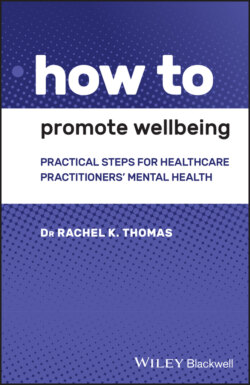Читать книгу How to Promote Wellbeing - Rachel K. Thomas - Страница 14
Problem factor: The diathesis‐stress model
ОглавлениеNumerous health conditions are categorised according to genes and their environmental interactions.17 The diathesis‐stress theory is the increased risk of a condition, such as depression, calculated by multiplying the impact of the genes by the environmental impact.17
‘Diathesis’ is a person’s predisposition towards an illness, based on their specific set of biological factors.17
Much research supports an association that is significant between stressful life events and major depressive disorder.17 Some of this even suggests that in more than half of the cases of depression, there is an instance of severe adversity.18 The converse is also supported as true – that some of us will not present with cases of depression after severe life events. This evidence supports the idea that the symptom development is related to the complex interaction between how vulnerable and individual is – diathesis – and the stress that they are subject to.17
This model, which has been applied to many different psychopathologies, highlights that any periods of increased demand may be considered as stress. However, this may be a relevant way of viewing the impacts of crises and pandemics in the healthcare system, as these may be considered as serious life events for many clinicians. This reinforces the fact that during and after such events, additional support may be required, as we cover below.
We can do little about our genes, except perhaps to attempt to promote positive epigenetic changes in order to possibly affect their expression. We can, however, influence our environments – if not at the time of crisis or significant life event, then hopefully immediately after. Where we are unable to alter our external environment, we may potentially be able to at least change our internal – psychological – environment.
According to this model, there are certain points in life which act as serious life events. These may then, in turn, trigger mental health conditions in those of us who may, for many different reasons, have a genetic or biological vulnerability. We have little insight into predicting who has these vulnerabilities; however, with this information, we can aim to offer improved support to everyone in the wake of such events. This, in a healthcare context, may relate particularly to crises and pandemics which may act as such a trigger, as may other complex clinical cases.
Studies looking at the impact of COVID‐19 on healthcare practitioners are also revealing the impact this crisis has had on us. One multi‐centre study with 1,257 front‐line staff in Wuhan, China found that healthcare staff who were involved in the care of patients with COVID‐19 were associated with a greater risk of depression, insomnia, and anxiety symptoms.19 Their levels of these symptoms were significantly higher than those of their colleagues in secondary roles, with men less likely than their female colleagues to report such symptoms.
